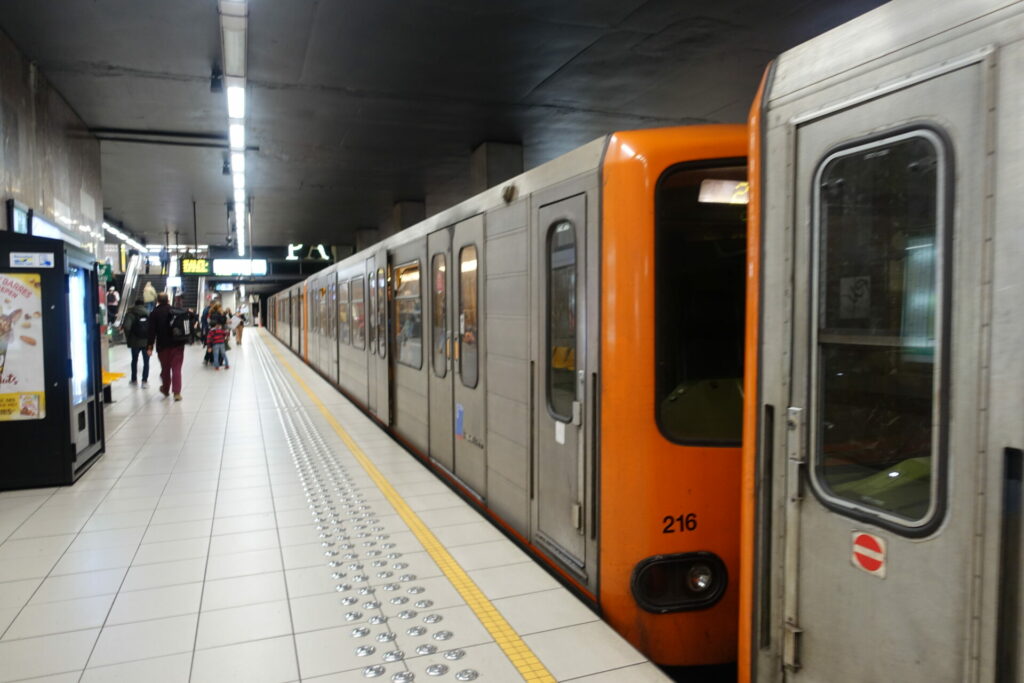The Brussels public transport operator STIB is planning to introduce driverless metros to Brussels over the next few years with tests now planned for the summer of 2025.
Speaking at the International Association of Public Transport (UITP) summit in Barcelona, director of the STIB modernisation programme Marleen Telemans announced that the new M7 trains will make automating the Brussels metros a possibility. Three stations on line 5 – Ceria, Eddy Merckx and Erasme – will be tested in the summer of 2025.
Most visible to the public will be the installations of the platforms. Preparing platforms for the automation will require two to three weeks per platform, which Telemans says will take "about two months per station." Yet she added that work will be carried out at night to minimise passenger inconvenience.
The tests should be completed in mid-2026. "The validation phases are long, but they should prove that the technology works".
Testing phase
The tests will initially be conducted with a driver before switching sections to fully automated. This will see metros arrive at Ceria with a driver, who will then disembark. The train will then continue to Erasme without a driver. Upon returning to Ceria, the driver will reboard and continue the journey.
The automated system tested in Brussels will follow in the footsteps of that already implemented in Barcelona, which has fully automated three of its 12 lines.
Manuel Bertràn, project manager at TMB, Barcelona's public transport company admitted that it requires a big initial investment but highlighted the numerous benefits. Most notably perhaps is that "new trains can be injected into the network very quickly to meet demand, without the need for an available driver."
Related News
- Five modern metro models to be up and running in June
- Metro line 3's future is in doubt without Evere link, says STIB
While the STIB tests will be carried out on line 5, the Brussels government has decided that "the first fully automated line will be line 3" between Albert (Forest) and Bordet (Evere).
However, recent developments have cast doubt over the future of Brussels' metro line 3, such as technical difficulties and major cost overruns. The initial goal of having automated metros by 2030 was said to be unrealistic as a result.
In the meantime, the Brussels metro will see improved service from the end of 2024 thanks to more advanced technology that is "improving the use of the network," Telemans said. Specifically, it is making it possible to increase the frequencies of the metros to around two minutes between each train. This represents a "potential gain of 3,500 extra passengers per hour and per direction".

